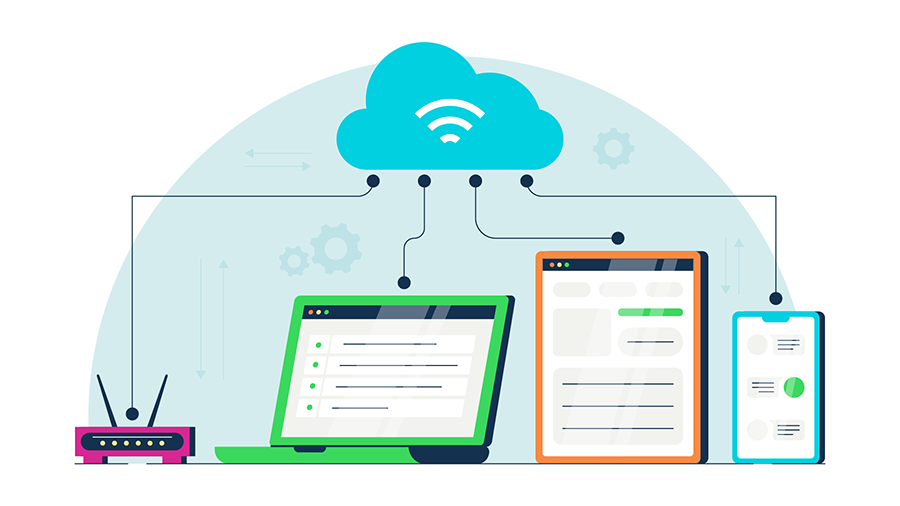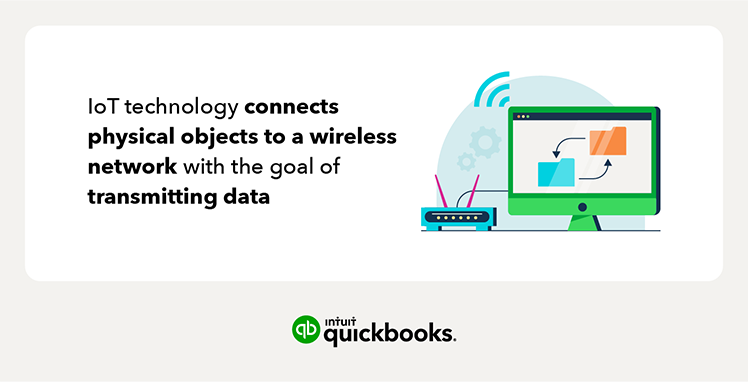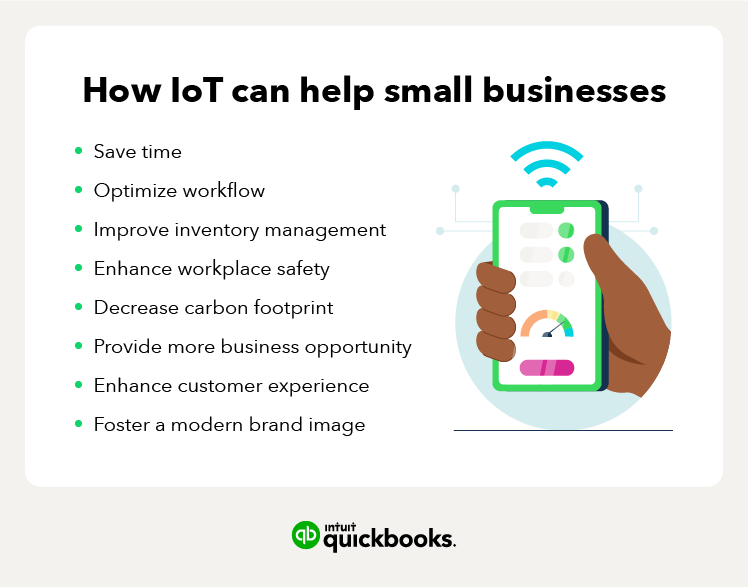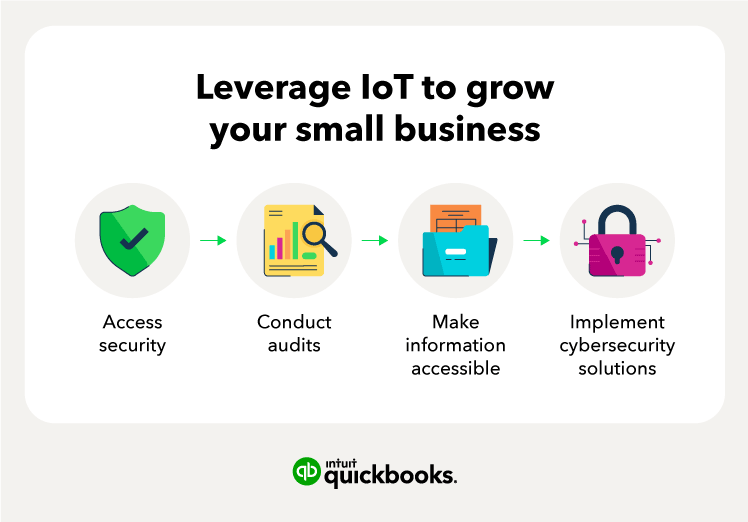IoT devices have revolutionized the way that technology and the physical world connect and cooperate with each other. IoT has many benefits in the workplace, including boosting productivity, automating processes, and expanding opportunities.
According to a study conducted by Aruba, 46% of businesses that stated they integrated IoT devices experienced gains in productivity. Explore the different benefits of IoT devices for small businesses below.
1. Save time and optimize workflows
Implementing IoT devices into your business’s strategy can help boost profitability and productivity in the workplace.
- Productivity: Since IoT devices help create optimized workflows through automation, repetitive tasks can be reduced and available machinery and resources can be optimized to their fullest.
- Profitability: IoT devices can speed up operations, resulting in increased reliability, improved performance, and reduced costs.
A business may also be able to perform more challenging tasks when it comes to production quantity, time, or difficulty. This can result in producing more advanced types of products and increasing output in general.
Example: GPS fleet monitoring systems can ensure that all transport, logistics, and sales fleets remain as on-budget and efficient as possible by collecting data from travels.
2. Get accurate analytics and data takeaways
Since IoT devices connect software, hardware, and artificial intelligence, data insights and analytics are much more in depth. With these more advanced analytics, businesses can:
- Unlock more opportunities
- Build different product lines
- Switch up revenue models depending on data patterns
Example: All IoT devices can track and monitor different types of data, such as environmental data, equipment data, product purchase data, and more.
3. Enhance customer experience
By building products with IoT capabilities, you can boost customer satisfaction. For example, chatbots and artificial technologies are the latest e-commerce trend that can help not only streamline customer service, but can also synthesize data and spot issues with a product or service that can be improved by getting feedback from the customer.
The buying experience is increased with IoT, resulting in friction-free commerce.
Example: Voice assistants, including chatbots, can elevate sales and services as well as deliver a more efficient customer support experience.
4. Potential to decrease carbon footprint
IoT devices can help your business adopt more sustainable habits, which in turn reduces your carbon footprint. Additionally, smart collaboration tools can make it easier for teams to work remotely, reducing the number of fuel emissions from daily commutes.
Example: Installing smart thermostats in your workplace can help regulate and optimize energy consumption, reducing your carbon emissions as well as lowering your utility bills.
5. Improve workplace safety
IoT devices can help ensure workplace safety with automatically scheduled and controlled maintenance. This can also help ensure workplace compliance with required regulations. IoT devices can also help reduce human error during stages of operation.
Having improved workplace safety that meets compliance standards can help your business attract investors or partners and boost your reputation.
Example: An IoT robot could perform a dangerous task much easier and quicker than a human would, eliminating any risk of injury.
6. Foster a modern brand image
IoT devices can help market your brand name and spread awareness Additionally, IoT devices and software can help you attract more experienced and trained employees, which also looks good to consumers.
Example: Any IoT devices that you implement into your business processes can help foster a modern brand image, whether it be inventory tracking or quality control process automation.
7. Improve inventory management
Businesses that have large inventory can benefit greatly from IoT technology. If your business is having a hard time keeping up with inventory analysis and is losing assets in the process, IoT can help with automatic control options.
Example: IoT sensors can automatically track physical inventory, eliminating the need for manual scanning of labels or bar codes. IoT package tracking assets within a supply chain can also help catch any assets that went missing during transit.
Drawbacks of IoT devices
Although there are many advantages that IoT offers small businesses, there are also some cons to be wary of, including:
- Cost: Implementing IoT devices and software in a business can be costly. Your business will need to install an integrated network of smart devices and technical infrastructure, and will require professional help to maintain and grow this software. However, the benefits these devices provide will likely outweigh the initial installation costs over time.
- Security flaws: Since IoT devices have widespread access to sensitive data and information, there is increased concern for data leaks and cyber threats. It’s especially important that your business hires professionals to help with proper implementation and security to reduce hacking attempts.
- Dependent on power and network supply: IoT devices require a power source and network connections to operate properly.
- Requiring professional experience: Installing, configuring, deploying, and maintaining advanced IoT devices can be costly, especially if you need to hire staff or a contractor to assist with the setup or operations.

















